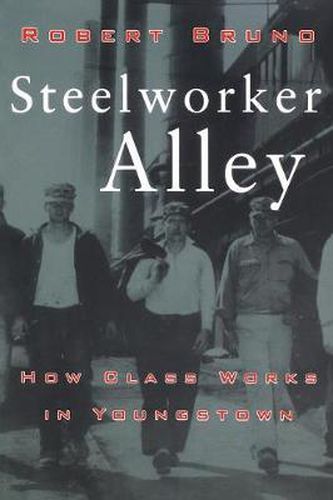Readings Newsletter
Become a Readings Member to make your shopping experience even easier.
Sign in or sign up for free!
You’re not far away from qualifying for FREE standard shipping within Australia
You’ve qualified for FREE standard shipping within Australia
The cart is loading…






For retired steelworkers in Youngstown, Ohio, the label working class fits comfortably. Questioning the view that labourers in post-war America have adopted middle-class values, Robert Bruno shows that in this community a blue-collar identity has provided a positive focus for many residents. The son of a Youngstown steelworker, Bruno returned to his hometown seeking to understand the formation of his own working-class consciousness and the place of labour in the larger capitalist society. Drawing on interviews with dozens of former steelworkers and on research in local archives, Bruno explores the culture of the community, including such subjects as relations among co-workers, class antagonism and attitudes towards authority. He describes how, because workers are often neighbours, the workplace takes on a feeling of neighbourhood. He also demonstrates that to understand class conscioousness, one must look beyond the workplace, in this instance from Youngstown’s front porches to its bowling alleys and voting booths.
$9.00 standard shipping within Australia
FREE standard shipping within Australia for orders over $100.00
Express & International shipping calculated at checkout
For retired steelworkers in Youngstown, Ohio, the label working class fits comfortably. Questioning the view that labourers in post-war America have adopted middle-class values, Robert Bruno shows that in this community a blue-collar identity has provided a positive focus for many residents. The son of a Youngstown steelworker, Bruno returned to his hometown seeking to understand the formation of his own working-class consciousness and the place of labour in the larger capitalist society. Drawing on interviews with dozens of former steelworkers and on research in local archives, Bruno explores the culture of the community, including such subjects as relations among co-workers, class antagonism and attitudes towards authority. He describes how, because workers are often neighbours, the workplace takes on a feeling of neighbourhood. He also demonstrates that to understand class conscioousness, one must look beyond the workplace, in this instance from Youngstown’s front porches to its bowling alleys and voting booths.